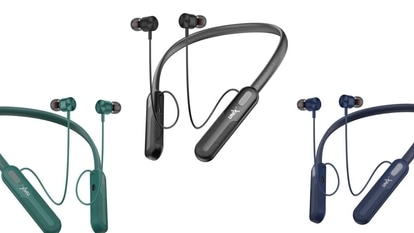In US, GPS a crime-fighting tool
The country is now taking the help of the Global Positioning System monitoring to track offenders.
It was just after 10 pm when William Cotter, wearing a belt full of ammunition, burst into the home of his estranged wife, Dorothy, shooting her in the back with a sawed-off shot gun before taking his own life.
Just five days earlier, a court had ordered him to stay away from his wife after decades of drunken violence and she was carrying a panic button linked to the local police station, in Amesbury, Massachusetts. But it wasn't enough to save her on the night of March 26, 2002.
Fast-forward six years. Electronic surveillance technology is changing the way authorities in the United States monitor repeat offenders. Its advocates say the new technology could have saved Dorothy's life. Its detractors fear a widening breach of civil liberties and an illusory sense of protection.
Coast to coast, authorities are expanding electronic monitoring to fight crime - moving beyond its early use in tracking movements of sex offenders to include gang members who have been released on probation, people accused of repeated violence against women and even truant students at schools.
At the heart of the surveillance is a technology best-known for helping people on the road: the global positioning system.
Other countries are watching closely. GPS monitoring is already established in parts of Europe but applied more narrowly, and it's growing fast in Latin America, said Jeff Durski, spokesman for iSECUREtrac Corp , based in Omaha, Nebraska, which manufactures the devices and leases them to police and courts.
Massachusetts, one of the first states to employ it in 2006, now has about 700 people fitted with electronic bracelets that send signals via satellite to computer servers if they go places they shouldn't -- so-called 'exclusion zones.'
The Massachusetts law, which allows judges to impose electronic monitoring as a condition of a restraining order, has become a model for states such as Illinois and Oklahoma.
The Oklahoma Senate voted 47-0 in April to enlist GPS technology to protect victims of domestic violence. The Illinois House of Representatives unanimously passed similar surveillance legislation last month.
Part of the appeal is money. GPS is a cost-effective alternative to prison, said Paul Lucci, deputy commissioner of the Massachusetts Probation Service, pointing to a chart taped to his office wall showing a state-wide surge in use of GPS -- mostly to track sex offenders but also for others.
'These people probably should be in jail but the cost of incarceration can be as much as $30,000 or $40,000 a year. The GPS costs about $3,400 a year,' he said.
'I think it's good on both sides. It is a device to protect the public. Although we can't guarantee anyone's safety, it provides an extra level of supervision on somebody. On the other side, for a defense attorney, it is in lieu of incarceration,' said Lucci.
DOMESTIC VIOLENCE
The Massachusetts law was inspired in part by Cotter's death and other cases of repeated abuse in a country where authorities say more than 1,000 women are murdered each year by intimate partners. It alerts police whenever an offender enters a restricted zone such as near a woman's home or office.
'It's more than just slapping a GPS on a guy. You have to really have an intelligent coordinated approach to it and then it really can save lives,' said Diane Rosenfeld, a professor at Harvard Law School who helped draft the Massachusetts law.
The Jeanne Geiger Crisis Center, a women's shelter which in 2006 began piloting the GPS programme in Newburyport, a Massachusetts city north of Boston, has a high success rate -- none of the eight men fitted with GPS have violated protective orders while wearing the bracelets.
Kelly Dunne, associate director at the center, said Dorothy Cotter's murder highlighted several major problems. A judge, for example, released her husband without bail less than a week after he violated a restraining order and threatened to kill her. Five days later, he murdered her.
'As a result of that homicide, we now identify high-risk perpetrators as early as possible,' she said. 'In some cases the judge orders GPS,' she said.
STRETCHED PRISONS
Authorities see it as an alternative to overflowing prisons in a country with the world's highest incarceration rate.
The number of people in US prisons has risen eight-fold since 1970 to 2.2 million people -- nearly a fourth of the world's total, according to the Sentencing Project, a research and advocacy group.
North Carolina's eastern Pitt County, a rural tobacco-growing region of 138,690 people, adopted the technology in late 2005 to relieve overcrowded jails by freeing more accused batterers on bond and tracking them with GPS before they go to trial. It was expanded last year to four more counties.
In a measure of success, police dispatchers receive fewer calls involving the same person when an offender wears a GPS bracelet. Pitt County's recidivism rate for domestic violence fell from 36 per cent in 2004 to 14 percent this year, said Sgt. John Guard of local sheriff's domestic violence unit.
But once batterers finish the program and go off GPS, the rate shot back up to around 40 percent, he added.
'It may help in the short term pre-trial. But post-trial, it's not. That tells me there are other things we have to do to ensure the safety of the victims,' he said.
There are other concerns. Los Angeles Superior Court Judge Michael Linfield warned a Harvard Law School panel in February that GPS may offer only a 'high tech illusion of safety' that fails to do more to protect women than traditional restraining orders, according to the law school's newspaper, The Record.
'We don't ever say to anyone that this will save your life,' said Barry Bryant, deputy director of the Governor's Crime Commission in North Carolina.
'It doesn't really guarantee much because the truth is it's real time. If someone has entered a zone where they shouldn't be, can you get there before they do something violent? I don't know. But it's an added measure of safety.'
He said police, not the court, mostly determine who wears the surveillance bracelets in North Carolina -- a nuance that raises civil liberties concerns.
'This should be done by independent judicial officials, not by police officers whose job is to investigate, not to mete out justice,' said Barry Steinhardt, head of the American Civil Liberties Union's technology programme in Washington.
'You want to protect the victims of domestic violence but there has to be a fair process.'
Catch all the Latest Tech News, Mobile News, Laptop News, Gaming news, Wearables News , How To News, also keep up with us on Whatsapp channel,Twitter, Facebook, Google News, and Instagram. For our latest videos, subscribe to our YouTube channel.

























